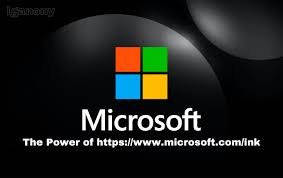Managed IT services help businesses stay up-to-date with technology, keeping their systems and applications running efficiently. They also offer backup and disaster recovery options, saving companies money.
Continuous Monitoring
Continuous monitoring enables DevOps teams to monitor and analyze compliance issues and security threats during development, testing, and deployment. It can also help teams track real-time user reactions to software updates. Data breaches are a major risk for organizations, and the regulatory environment makes it increasingly necessary to monitor threats and respond quickly to cyber incidents. Whether implemented by an in-house team or an MSSP, continuous monitoring is vital to any cyber resilience journey. According to experts in managed IT services Charlotte, continuous monitoring improves security and reduces system downtime, helping businesses avoid data losses. It also helps prevent and eliminate performance errors. It alerts incident response teams, enabling them to minimize damage and restore systems quickly.
Authentication
Authentication is a security function ensuring only authorized access can access systems and data. It works by checking a user’s credentials against a database of authorized users or an authentication server.
The role of authentication in data security is crucial as it prevents fraud, unauthorized access, theft, or exploitation of private information and systems. It also protects against phishing and credential stuffing attacks, which are common and cost organizations high helpdesk costs. Authentication can take the form of a single-factor authentication (SFA), two-factor authentication (2FA), or multi-factor authentication (MFA). This typically combines a password and other authentication factors, such as a biometric identifier like a retina scan. Organizations increasingly use these methods to protect sensitive customer data and banking accounts.
Backups
Data is one of a business’s most vital assets, and losing it due to a natural disaster or cyber attack can have disastrous consequences. That’s why data backups are essential to protecting your business.
There are several methods that businesses can use to back up their data, including USB drives, cloud storage, and software solutions. Each method offers unique benefits and drawbacks, so finding the right solution for your business needs is essential. A backup strategy should be an ongoing part of your organization’s cybersecurity hygiene. It should be monitored, tested, and maintained to ensure your backups are reliable and up-to-date during a disruption.
Network Security
Network security is a key aspect of data protection. It includes a set of technologies, devices, and processes that prevent access to data and network resources without proper authorization. A network’s security begins with the firewall, which protects the data from unwanted traffic, such as malicious attacks and viruses. Next, intrusion detection systems (IDS), intrusion detection and prevention system (IPS), and anti-malware technology protect data from known threats.
Compliance
Data security safeguards digital data from corruption, theft, and illegal access from intruders. It protects businesses from financial loss, reputational harm, and consumer trust degradation. Regulations like HIPAA or PCI, data security standards, help businesses adhere to security requirements, mitigating risks. However, these rules are often complex and challenging to meet. Compliance as a Service (CaaS) is an effective way to manage regulatory requirements while still focusing on your primary business goals. It allows you to remain compliant with the latest industry laws and security standards while not being distracted by administrative tasks or technology updates. Many managed service providers are well-versed in these requirements and can support you with compliance-related business processes and reporting. This helps you to free up internal resources to focus on revenue-generating initiatives and core competencies.
Also Read Interesting Articles At: Tech New Master.



















